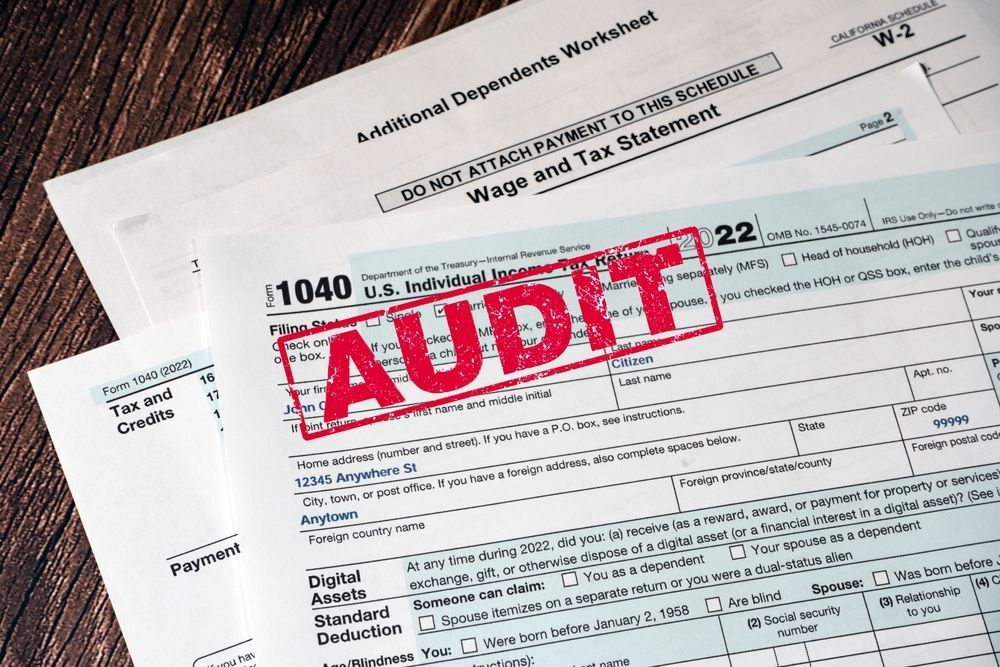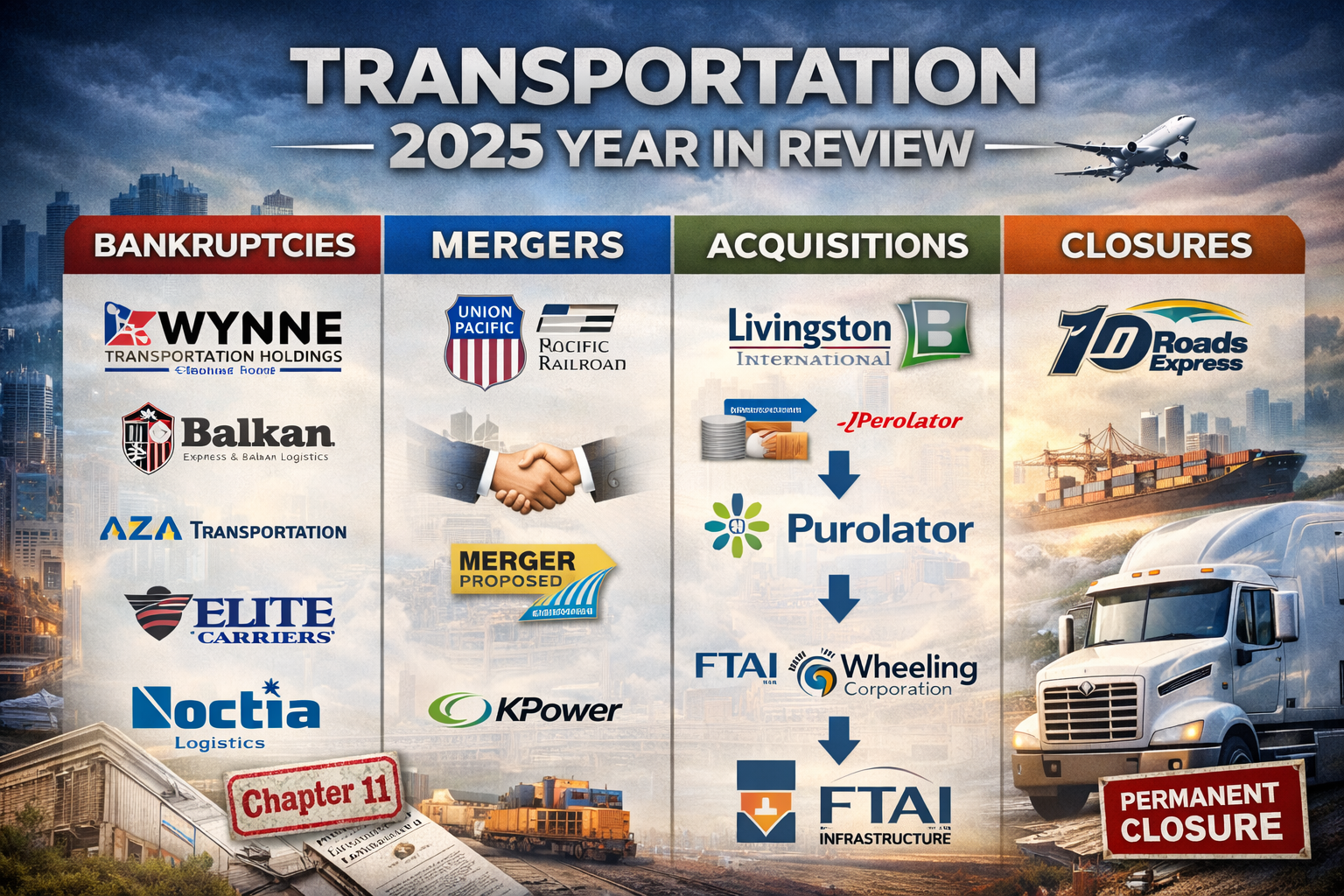IRS Audit Triggers for Transportation: How to Stay Compliant
Share this Article:

Transportation businesses face a complex tax landscape, and IRS audits can disrupt operations and drain resources. Understanding what draws IRS attention helps reduce risk and keep your company compliant.
Understanding IRS Audit Triggers
The IRS uses various data points and patterns to identify potential noncompliance. In the transportation industry, certain activities or inconsistencies are more likely to raise red flags. Recognizing these triggers allows companies to take corrective action before an audit is initiated.
Discrepancies in Fuel Tax Reporting
Fuel tax reporting is one of the most scrutinized areas in transportation. Inaccurate mileage logs, unreported fuel purchases, or inconsistent International Fuel Tax Agreement (IFTA) filings can quickly attract IRS attention. When data reported to the IRS doesn't align with what’s filed with state agencies or internal records, it creates a significant audit risk. Consistency and accuracy in reporting fuel usage and taxes are essential to stay off the IRS radar.
Misclassification of Workers
One of the most common IRS audit triggers in transportation is the misclassification of workers. Labeling employees as independent contractors without meeting IRS criteria can lead to back taxes, penalties, and interest. This issue often arises when companies attempt to reduce costs without fully understanding the legal definitions.
Inadequate Recordkeeping
Poor or incomplete records make it difficult to substantiate deductions, tax credits, or reported income, which can lead to audits. Transportation companies must maintain detailed logs, receipts, fuel reports, and other supporting documents. Without clear documentation, the IRS may question the accuracy of filings and flag the company for review.
Large Deductions or Credits
Significant deductions or tax credits that fall outside industry norms often trigger IRS scrutiny. In transportation, this can include unusually high equipment depreciation, fuel tax credits, or repair expenses. While legitimate claims are allowable, they must be well-documented and consistent with operational scale. Outliers without proper support can prompt an audit.
Multistate Nexus Issues
Transportation companies operating across state lines often create tax nexus in multiple jurisdictions. Failing to register, file, or remit the correct taxes in each applicable state can lead to both state-level enforcement and increased federal IRS attention. Nexus issues become audit triggers when tax obligations are overlooked or inconsistently applied in multistate operations.
Industry-Specific Compliance Considerations
Each sector within transportation faces unique compliance challenges. IRS audit triggers can vary depending on operational structure, reporting requirements, and industry norms. The following sections highlight key concerns for trucking, aviation, rail, and maritime companies.
Trucking and Fleet-Based Operations
For trucking and fleet-based companies, audits often stem from fuel tax discrepancies, unreported lease arrangements, and inconsistent asset depreciation. Incomplete IFTA records or improper vehicle classifications can also raise concerns. Given the volume of moving assets and interstate activity, maintaining accurate, centralized documentation is essential.
Aviation, Railroad, and Maritime Sectors
These sectors face distinct audit risks tied to specialized tax treatments, such as aviation fuel excise taxes or vessel usage classifications. Improper handling of depreciation schedules, lease structures, or multijurisdictional reporting can lead to compliance issues. A detailed understanding of industry-specific rules is key to avoiding audit exposure.

Best Practices to Stay Compliant
Staying ahead of IRS audit triggers requires proactive planning and disciplined execution. The following best practices help transportation companies strengthen compliance and reduce risk.
Implementing Proactive Recordkeeping Systems
Accurate, timely records are the foundation of audit defense. Implementing digital systems for fuel tracking, maintenance logs, and tax filings improves data integrity and simplifies access during reviews. Centralizing documentation also reduces the risk of errors and ensures consistency across departments and locations.
Conducting Periodic Internal Reviews
Regular internal reviews help identify compliance gaps before they escalate into audit issues. Reviewing filings, tax positions, and documentation against current regulations improves accuracy and highlights areas that need attention. These reviews also prepare teams to respond confidently if the IRS initiates an inquiry.
Partnering with Transportation Tax Experts
Working with professionals who specialize in transportation tax adds a layer of protection against audit risk. Industry-focused advisors understand the nuances of IRS audit triggers and can offer guidance tailored to complex, multistate operations. Their expertise helps companies stay compliant while optimizing tax positions.
Best Practices to StaWhat to Do If You’re Auditedy Compliant
Even with strong compliance practices, audits can still happen. Knowing how to respond reduces stress and protects your business during the review process.
Steps to Take Immediately
At the first notice of an audit, gather all relevant documentation and notify internal stakeholders. Avoid making changes to records, and refrain from speculative explanations. Review the IRS request carefully to understand the scope, and begin preparing materials that directly respond to what’s being asked.

Working with IRS Agents Effectively
Professional, organized communication sets the tone for a smoother audit process. Designate a single point of contact to handle all interactions with IRS agents. Be transparent, responsive, and avoid offering more information than requested. A calm, cooperative approach builds trust and can help limit the audit’s scope.
Corrective Action for Future Compliance
After an audit, take time to assess what triggered the review and where improvements are needed. Update internal processes, close documentation gaps, and implement new controls where necessary. Proactive adjustments reduce the likelihood of future audits and strengthen overall tax compliance.
Key Takeaways
Transportation companies face heightened IRS scrutiny due to complex operations and multistate tax exposure. Common IRS audit triggers include discrepancies in fuel tax reporting, worker misclassification, and inconsistent records. Staying compliant requires strong documentation, routine reviews, and industry-specific tax expertise. When audits do occur, a calm and informed response makes a measurable difference.
How Transportation Tax Consulting Can Help
Transportation Tax Consulting offers deep industry expertise to help companies navigate and avoid IRS audit triggers. We work exclusively with transportation businesses to identify risk areas, streamline compliance, and implement effective tax strategies. Whether you need help preparing for an audit or building a proactive compliance framework, our team is here to support you.
Schedule a consultation to learn how we can help protect your operations and reduce your tax burden with confidence.
Share with Us:




